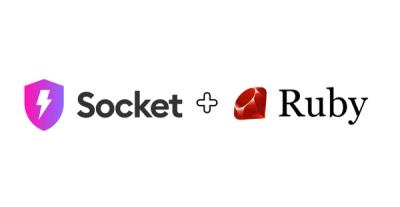biz-ops-schema
Schema for biz-ops data store and api. It provides two things:
- yaml files which define which types, properties and relationships are allowed. These are intended to be edited by anybody who wants to add to the things the api models
- a nodejs library for accessing subsets this information
Installation and usage
npm install @financial-times/biz-ops-schema
In production the component should be used in either 'poll' or 'stale' update modes, depending on the type of environment
Persistent nodejs process (e.g. heroku)
const { configure, startPolling } = require('@financial-times/biz-ops-schema');
configure({
baseUrl: process.env.SCHEMA_BASE_URL,
updateMode: 'poll',
logger: require('n-logger'),
ttl: 10000,
});
startPolling().then(() => {
});
Transient nodejs process (e.g. AWS lambda)
const { configure, refresh } = require('@financial-times/biz-ops-schema');
configure({
baseUrl: process.env.SCHEMA_BASE_URL,
updateMode: 'stale',
logger: require('n-lambda-logger'),
ttl: 10000,
});
const handler = async event => {
await refresh();
};
Speak to a member of the biz ops team to obtain a suitable value for SCHEMA_BASE_URL.
Local development
When npm linking to test schema changes in an application, set updateMode: 'dev' to retrieve schema files from the local yaml files and disable polling/refersh on stale.
Adding to the schema
See CONTRIBUTING.md
Releasing
Create an appropriate semver tag:
- for additions to the schema release as a patch
- for additions to the api relase as a minor
- breaking changes to the API or changes to the structure of data in the yaml files should be released as major
This will release a new version of the library and push a JSON copy of the latest version of the schema up to an s3 bucket, at the path /latest/v{major version}.json. As soon as the API has picked up this latest version, it will push a copy to /api/v{major version}.json, which can then be safely consumed by other applications.
API
All methods use an internal caching mechanism, whih is flushed whenever the schema updates. For this reason
- it is safe to call these methods many times because the complex transformation of values is only executed on the first invocation
- it is an antipattern to store the result of any invocation in a variable for any non synchronous period of time - this may result in incorrect reading or writing of data
getType(type, options)
Get an object defining the structure of a given type. The following transforms will be executed on the raw yaml data.
- if no
pluralName field is defined, it will be generated - any named stringPatterns will be converted to validation functions
The full object structure returned by getType() can been seen here
options
withRelationships [default: true]: Include the relationships for the type, expressed as graphql property definitions.primitiveTypes [default: 'biz-ops']: Graphql only has 4 primitive types - String, Boolean, Int and Float - whereas the biz-ops ecosystem recognises a richer variety e.g Document, Url. They are stored in the schema as these biz-ops types. Setting primitiveTypes: 'graphql' will output property type names converted to their graphql equivalent. This option shouldn't really be needed by anywhere other than the graphql servergroupProperties [default: false]: Each property may have a fieldset attribute. Setting groupProperties: true removes the properties object from the data, and replaces it with fieldsets, where all properties are then grouped by fieldsetincludeMetaFields [default: false]: Determines whether to include metadatafields (prefixed with _) in the schema object returned
getTypes(options)
Get an array of objects defining the structure of all types. options are the same as for getType
getEnums(options)
Retrieves an array of key:value objects defining the acceptable values of an enum
options
withMeta: wrap the enum in an object which also has metadata about the enum (e.g. 'description'.). In this case, the actual enum options will be in a options property
validateTypeName(typeName)
Validates that a type of the given name exists in the schema
validateCode (typeName, code)
Validates that a code string matches the validation pattern defined for codes for the given type
validatePropertyName ( propertyName )
Validates that a string is a valid name for an attribute (i.e. camelCase)
validateProperty(typeName, propertyName, propertyValue)
Validates that the value of a property for a given type is valid
getGraphQLDefs()
Retrieves graphql defs to be used to power a graphql api
normalizeTypeName
Should be used when reading a type name from e.g. a url. Currently is a noop, but will allow consistent rolling out of more forgiving url parsing in futre if necessary
The methods below are unimplemented
describeGraphqlQuery(query)
Decorates a graphql query with metadata from the schema
describeGraphqlResult(query, result)
describeRestApiResult(type, result, options)



